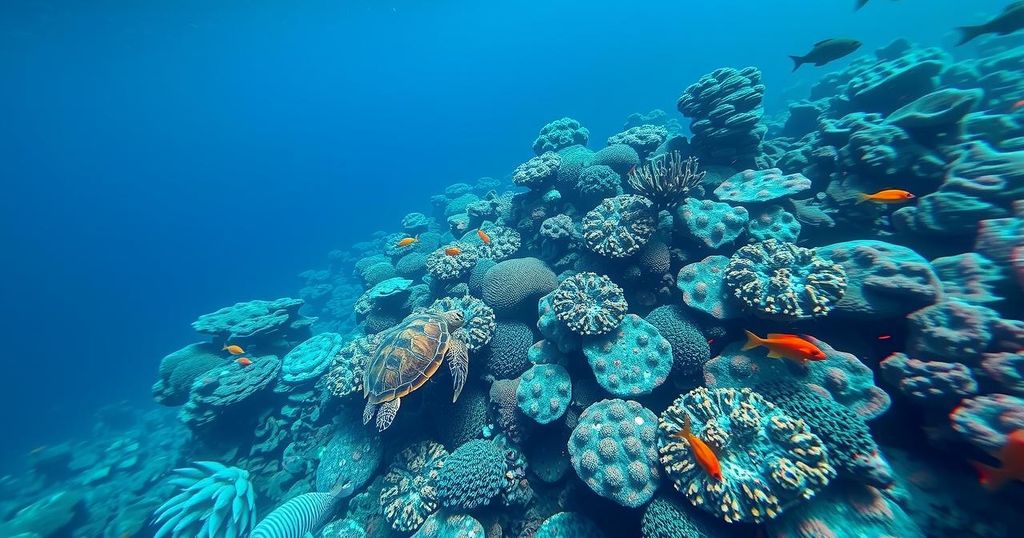Sea Turtle Consumption Linked to 420 Deaths Worldwide: New Study Findings
Research indicates that eating sea turtles can lead to fatal consequences, with at least 420 deaths and 2,400 illnesses globally due to chelonitoxism. Recent incidents in the Philippines and Tanzania highlight the dangers of consuming turtle meat. Hawksbill turtles are the primary source of this poisoning, and breastfed infants may also face risks. Proposed treatments show promise for those affected.
A recent study has highlighted the dire consequences of consuming sea turtles, linking this practice to at least 420 fatalities and over 2,400 cases of chelonitoxism, a rare yet lethal seafood poisoning. The most recent incident occurred in the Philippines, resulting in three deaths and 32 hospitalizations after a meal of an endangered sea turtle.
In March 2024, on Pemba Island in Tanzania, nine individuals died and 78 were hospitalized following the consumption of sea turtle meat. Chelonitoxism, or sea turtle poisoning, primarily affects the digestive system, presenting symptoms such as nausea, vomiting, and diarrhea, along with dizziness and malaise. While recovery occurs within a week in most cases, severe instances may lead to serious complications.
The study examined 62 cases of chelonitoxism from the Caribbean and regions of the Indian and Pacific Oceans, documenting 2,424 victims and 420 fatalities. The majority of incidents originated from remote areas of the Indo-Pacific, including regions like Zanzibar, Madagascar, India, Japan, and the Philippines.
Approximately 70 percent of the reported chelonitoxism incidents stemmed from Madagascar (25.4%), India (13.6%), and French Polynesia (10.2%). Notably, illegal turtle exploitation from 1990 to 2020 was significant in Haiti, suggesting that poisoning cases in the Caribbean may be underreported due to the clandestine nature of these practices.
Hawksbill turtles are the most frequently implicated species, accounting for 59 percent of such poisoning cases, while green turtles contributed to 23 percent. All turtle organs are considered toxic, regardless of the method of cooking, with incidents even involving eggs believed to possess aphrodisiac properties. Infants fed breast milk from mothers who consumed turtle meat may also experience poisoning.
Proposed treatments for chelonitoxism victims include intravenous lipid emulsions, which have shown success in treating sea turtles afflicted by a related toxicity. This evidence underscores the urgent need for awareness regarding the risks associated with sea turtle consumption.
The findings of this study reveal the severe health risks associated with the consumption of sea turtles, culminating in hundreds of fatalities. As incidents primarily affect remote regions, further underreporting may obscure the actual scale of chelonitoxism. In particular, hawksbill turtles pose a significant threat through poisoning. Enhanced awareness and reporting mechanisms are critical to address these health and environmental concerns regarding illegal turtle consumption.
Original Source: www.jamaicaobserver.com




Post Comment